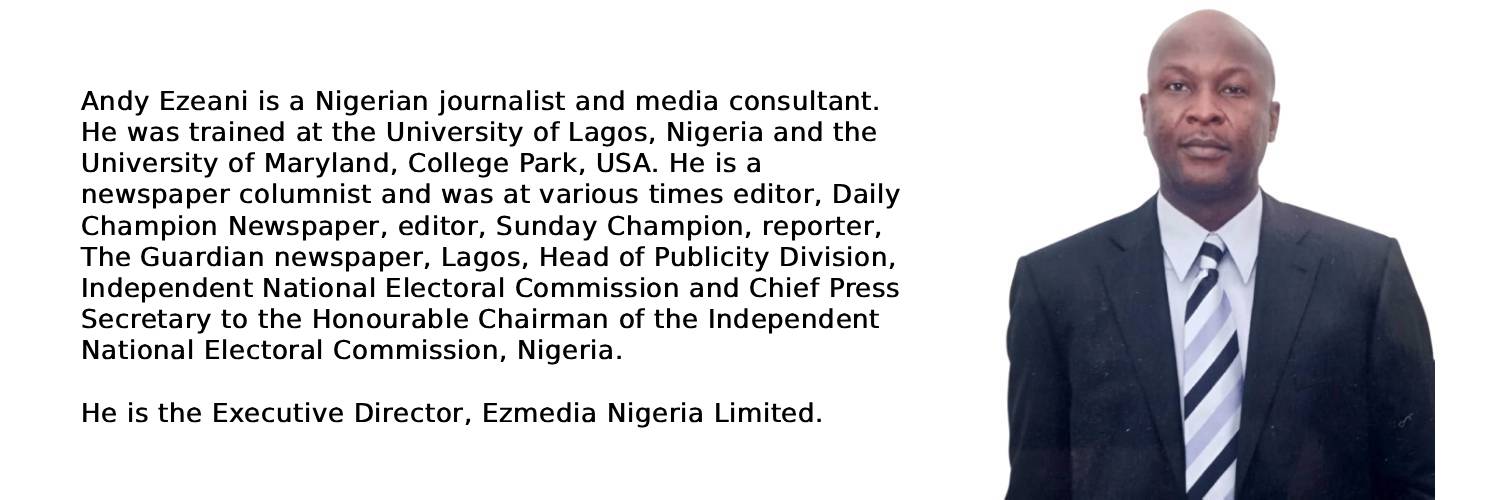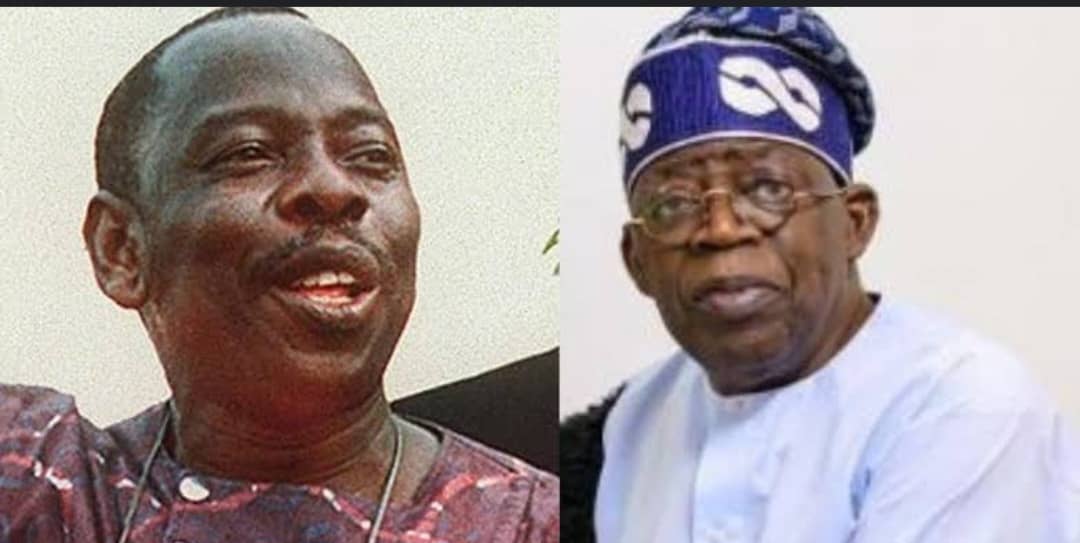By Andy Ezeani
Ogoniland has borne its fair share of what the scholar, Michael L. Ross, aptly called ‘the oil curse’. Being a part of the larger Nigerian entity that amply manifests the “paradox of plenty”,it can be understood if oil-rich Ogoniland bears its own portion of the burden of the paradox
Beyond lower economic growth, less democracy and general poor economic development outlook – identified indicators of the oil curse – Ogoniland has literally been gasping for air for so long. It has paid the ultimate price for being “blessed” with oil, and for daring to ask for fair deal in its own land.
In all this, Ogoniland is a metaphor. Its story is long and traumatizing, indeed, a dirge.
Very much like Nigeria, stories about Ogoniland are often characterized by contradictions, tragedies, and ironies. Here, declared good intentions by the state and multinationals are often intertwined with illegality or disdain for justice, raising questions about the actual purpose of the actions. As it is with Ogoni, so it is with Nigeria.
The struggle for the soul of Ogoniland was bound to claim casualties.It was only a matter of time. Of course, the citizens and residents of the area have borne the brunt of environmental degradation over the years. Agitation for environmental justice had actually become the essence of the life of Ogoni people.
It was not quite strange that in such a tense setting, differences would arise among community leaders over methods and perspectives on the appropriate strategy to get the most and the best for the troubled land. This inevitable clash of approach eventually resulted in a tragedy that turned out to be as devastating on Ogoniland as the worst of environmental degradation.
In May 1994, while attending a strategy meeting in Gokana Local Government Area, four prominent leaders of Ogoniland who had a different, less militant approach to the struggle for better Ogoniland, were rounded up and gruesomely murdered.
The four victims; Chief Edward Kobani, Albert Bade, Samuel Orage, and Theophilus Orage, were not only well known and established personalities, they were as Ogoni as any person could lay claims to. Why were they murdered? Apparently because they had a different approach to the struggle from a seemingly more militant group. Who were responsible for the dastardly act? That remains the question. A convenient answer is that a mob killed the four. The mob was Ogoni,anyway.
Government intelligence identified the Ken Saro-Wiwa led militant group of agitators in Ogoniland as being squarely responsible for the killing of the four prominent men. Saro-Wiwa had headed the Movement for the Survival of Ogoni People (MOSOP). He was deft on rhetoric.
The military government of General Sani Abacha subsequently arrested Saro-Wiwa and eight others, detained them, and set up a special tribunal to try them for the murder of the four.
The Ogoni bonifides of both the murdered and the accused were never in question. Clearly, it was all about elite struggle for control of the community.
On October 30 1995, the Justice Ibrahim Auta-led tribunal convicted the 9 persons led by Saro-Wiwa, commonly referred to as the Ogoni 9. They were condemned to death by hanging. On November 10 1995, the judgment was executed.
The Ogoni 9 went the way of the Ogoni 4, leaving Ogoniland diminished, even as its core plight remained. Virtually all meaningful activities in Ogoniland have been in suspended animation after the tragedy of Ogoni-on-Ogoni violence. Oil exploration equally ceased.
Thirty years after, Bola Tinubu, now president, elected to re-visit Ogoniland. There’s nothing wrong with that. His steps were bound to be contentious.
On June 12 2025, the president pardoned Saro-Wiwa and eight of his associates. He also awarded them national honours. This instantly raised the question of propriety. National honours for exactly what?
Was that a politician’s chase of populism or something? Well, the honour may be for environmental activism. But what about their conviction for murder, for which they were hanged? The pardon took care of that, as it seemed.
Interestingly, however, some of the families of the hanged men were not very excited about Tinubu’s gesture. They insist that the killing of their relations by the state was premeditated, that the men were not guilty, ab initio. There is, therefore, no basis for a pardon. A spouse of one of the men reportedly said that “pardon is not granted to the innocent”. Tinubu’s choice of word was clear.It was a pardon.
Three months later, the president returned to Ogoniland and issued another round of national honours, this time to the Ogoni 4 – Chief Edward Kobani, Albert Bade, Samuel Orage and Theophilus Orage. Ogoniland became awash with national honours. For both the murdered and their convicted murderers, everyone is now a Commander of the Order of the Niger (CON) or an Officer of the Niger(OON).
It is probably all in the line of making peace and striving to restore normalcy to Ogoniland. Even at that, desirable though peace may be, the practice of government throwing either money or national honour at intractable problems, with a view to burying them thereafter, can only offer transitory relief. Some issues call for rigour, caution, and firmness.
Now, if the government decided to honour the Ogoni 9, what was the national honour to the Ogoni 4 for?
Respectively, Chief Edward Kobani, Albert Bade, Samuel Orage, and Theophilus Orage merited national honour, having individually served the country in various capacities in their lifetime.But they were murdered for no known reason.
What the dead men and the bereaved families yearn for is justice and getting to the root of the criminality of their killing, not posthumous award.
By the same token, the families of the Ogoni 9 insist that there was no basis for President Tinubu to grant pardon to the 9 because they were wrongly convicted.
If, the Ogoni 4 were not killed by thunder, or in an accident, and the families of the Ogoni 9 convicted for the heinous act are saying that those convicted were not properly found guilty, the government has a challenge at hand. Starting from the intelligence report that nailed the Ogoni 9 and the Justice Auta special tribunal that convicted them, the Tinubu government can establish a new panel to review the incident, with a view to painstakingly establishing who killed the Ogoni 4.
It is most likely that Tinubu’s national award to the Ogoni 4 was part of the recommendation of the Presidential Committee on the Ogoni Consultations chaired by former Vice Chancellor of the University of Port Harcourt, Prof. Don Bondman. The need to restore peace in Ogoniland can not be over emphasized.
Government’s prompt directive after the submission of Prof. Bondman’s report, for steps to be taken immediately to reactive oil exploitation activities in Ogoniland speaks of the desire for Ogoni to have a semblance of peace.
However, for peace in Ogoniland to be firmly grounded and for Nigerians at large to be properly guided, acts of criminality must be established wherever and whenever they occur and punished appropriately.
Distributing national honours to both the killed and the convicted killers makes a mockery of national honours. If the Ogoni 9 did not kill the Ogoni 4, the government has a duty to find the killers, now that it has expressed interest there. Even Sani Abacha can do with fairness.


